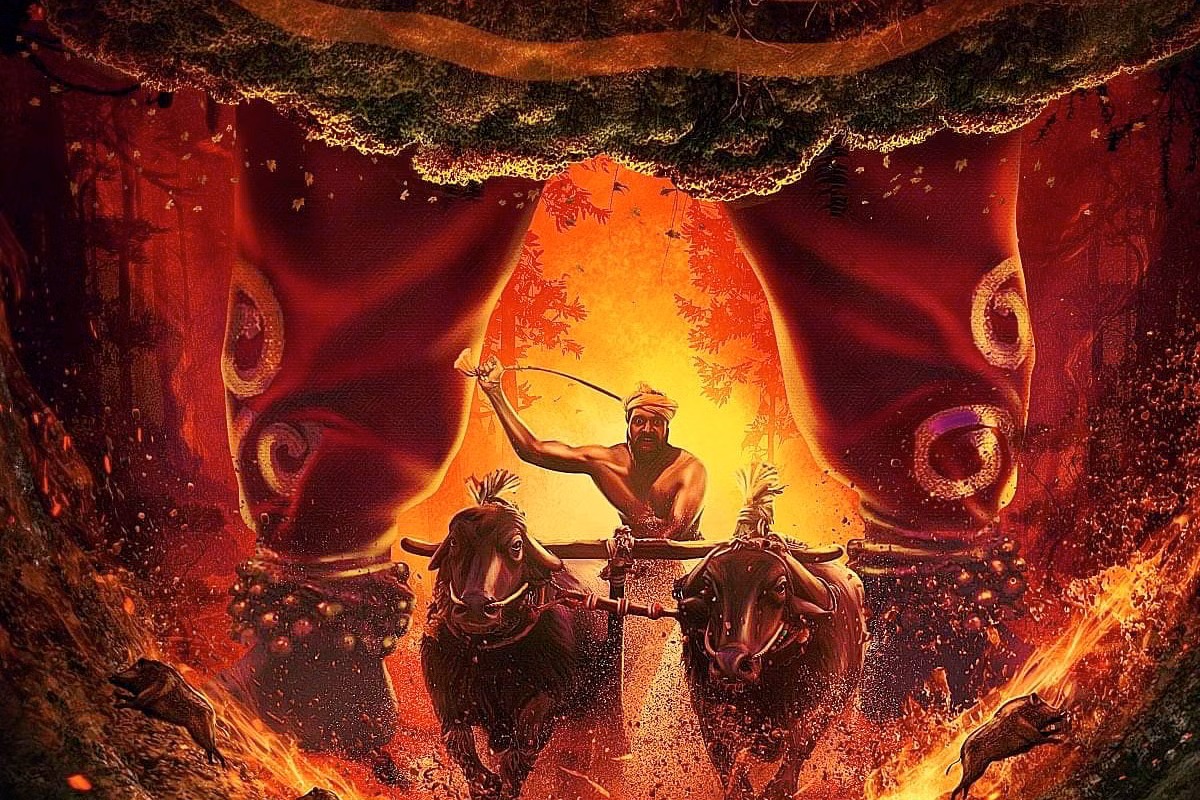

MVedR
Kantara: Cinematic Excellence Both In Spirit And In Form
A gripping tale of the battle for dharma and how it chooses its warriors no matter how hard they try to defy destiny’s attempts at reminding them of their role in the scheme of things.
More importantly, it unapologetically and aesthetically portrays tradition as truth and not, as is popularly and conveniently done often, as a ‘myth’.
Actor, director Rishab Shetty’s Kantara is a tale set in his homeland coastal Karnataka that looks at how greed eventually does take everything down and truth finds its glorious pedestal, irrespective of how powerful be the forces against it.
‘Once upon a time’…like most of our folktales begin…so does the film.
The central theme and the backstory, with which the film begins, is of the legend of how a ‘daiva’, the deity worshipped in the tradition of spirit worship or bhootaradhane that is indigenous to coastal Karnataka, appeared as an answer to a king’s life quest and in return sought the stretch of forest as land grant for its inhabitants.
The film then traces the journey of tradition versus human weaknesses especially greed, tradition versus laws which may be right in intent but are often detrimental to existing ways of social life and living.
It is also a nuanced expression of the internal battle between being a bearer of tradition versus avoiding it for the fear of what it may bring, owing to a past experience one associates with it.
Shiva the protaganist played by Rishabh Shetty who is also the director of the film, plays the character of a rural macho youth who works at the house of a landlord also running his buffalo bulls for Kambala.
Shiva’s fight for ‘dharma’ which translates as ‘being just, right, true’ in its widest sense is the constant in the film.
He fights for the medal which rightly belongs to him, he fights for his people to whom the forests belong, he fights for his brother who has been wronged and killed.
But his fight, like the character sketch and the humour of the film are very rustic, organic and do not have an air that makes it feel scripted. It is very natural.
The humour is often cheeky and suggestive at places but none out of place or forced. It adds to the character description and the equations between them.
The casting is flawless.
Kishore, as the cop and the main antagonist, is once again at his subtle best. Those who have watched the Netflix production She, will see its ‘nayak’ in an even stronger role.
The female lead Saptami Gowda plays his love interest Leela is a newly trained forest officer who is torn between tradition and duty. While those that would like to find flaws and associate her ‘sexualisation’ and the ‘male gaze’ as being ‘objectification’, can do so, but none of it is brash or diluting the strength of her character.
The sketch of women characters in fact, is subtle and strong - be it Leela, or Shiva’s mother or the landlord’s submissive wife Anammakka.

Leela’s struggles, her argument, the stand she takes at various turn-points and the justification she gives each time, augment her character. She is anything but just a masala element added for the purpose of commercial viability of the story.
MVedR
MVedR is the owner of this blog .